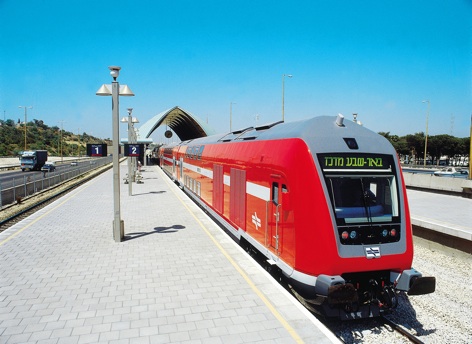So here we are again. Business case for High Speed 2, take five. In some ways this reminds me a little of Lewis Carroll’s the Hunting of the Snark — not a poem in several chapters, according to Carroll, but an Agony, in several Fits. The progress of HS2 is indeed agonising, and the paroxysms of opposition do seem fit-like. And, like much of Carroll’s work, many dismiss it as nonsense.
There are those who think that taking five tries at the business case for such a large project smacks of desperation. Among those is Evan Davies, presenter of Radio 4’s Today programme, who noted that the argument in the new document had shifted from the increased speed of travel to the improvements in carrying capacity. Doesn’t that mean you’ve run out of ideas, he asked transport secretary Patrick McLoughlan yesterday.

But of course capacity has been at the centre of the strategy of HS2 from the start, as readers of our coverage of the project will know. The Engineer has been broadly supportive of HS2 because we’ve always spoken to the engineers involved in planning the project rather than politicians, and they’ve given us arguments that make more sense. Whether they make £50bn-worth of sense is another matter, and that’s an argument worth having (and where our support comes up against serious questions).
It’s the issue of capacity and alternatives which the latest study seeks to answer. This government’s record with statistics is dodgy to say the least, so its conclusions must be subject to scrutiny. But the assertion that upgrading the West Coast Mainline to provide the same capacity benefits as HS2 would lead to 14 years of service disruption and weekend closures should at least inject some more realism into the arguments of HS2 critics.
It’s always seemed that suggesting the approach of upgrading existing lines as an alternative has seemed glib, as though it would be easy, or cheap, or free from any disruption. Whether or not the business case document is correct, there can be little doubt that such a severe upgrade would cause a long period of chaos. Other ‘simple’ fixes would surely also require more complex work than might first appear — can you just replace current rolling stock with double-decker trains without extensive rail replacement, reinforcement, rebuilding of bridges, and station refurbishment to cope with extra passengers?
If the report refocuses the pro and con camps on the actual issues, rather than on rhetoric which doesn’t address the actual engineering, then that has to be a good thing. A project such as this needs to be discussed, and not in the context of political point-scoring and hysteria.
The argument that HS2 will take express trains off the West Coast line and allow it to carry more stopping services seems sound and is familiar to us. It’s also argued that this would allow the West Coast to carry more freight, taking heavy traffic off the road. The arguments are strongly dependent on the demand for rail continuing to rise, and this is something worth debating — with increasing internet capacity and ‘virtual meetings’, do businesspeople really need to travel that much? If not, would non-business travel justify the cost? Would people rather take the train than drive?
We idly wondered whether the arguments over HS2 would have been different if the project were scheduled to start in the North, with phase one connecting Leeds and Manchester to Birmingham and phasetwo completing the link to London. Would there have been less opposition, with the plan more clearly emphasising the connectivity where there is currently none? The cynical view is that of course there wouldn’t – the opponents would just be saying “Why build the line in the North where there aren’t enough people to use it? Put it in the South where the trains are so full that the doors won’t close!”




Glasgow trial explores AR cues for autonomous road safety
They've ploughed into a few vulnerable road users in the past. Making that less likely will make it spectacularly easy to stop the traffic for...